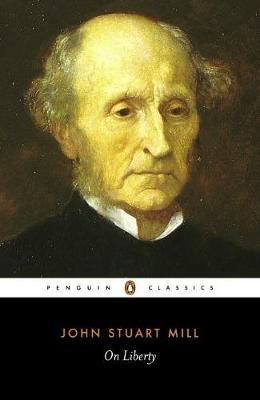Cultural Appropriation, Copyright and Formalism

Interview by Richard Marshall

'I am aware, of course, that minority and, especially, indigenous people have been terribly oppressed and that it is incumbent on me to take as much care as I can to treat them with respect and consideration. However, I do not believe that I treat anyone with respect and consideration if I do not challenge them when they hold beliefs that I believe to be false. On the contrary, that is to treat people disrespectfully. I do not treat people with disrespect when I engage them in debate as equals. I do disrespect them when I defer to them even when I disagree. That is like treating them as children.'
'The problem is that artists are not doing well under the current copyright regimes. The people who profit most from current laws are the already obscenely wealthy.'
'On the basis of the empirical evidence, it is now all but certain that many listeners experience music as resembling human expressive behaviour. It is equally certain that music arouses ordinary emotions.'
'Someone might listen to Bach’s St. Matthew Passion and decide that he doesn’t like the way that it sounds. However, it might be possible to derive insight from it. If so, then the way is open to a non-subjective way of judging art.'
James Young has published several monographs and over sixty articles on philosophy of language and philosophy of art, including work on theories of truth, realism vs. anti-realism, and philosophy of music. Here he discusses the ethics of cultural appropriation, the role of authenticity, whether appropriation is harmful,a form of theft or assault, the notion of 'profound offence', why no one has the right not to be offended, philosophical issues arising from copyright laws, proposed changes that would improve things, why formalism in music is an error, the role of lyrics in music, the heresy of substitutable experience, and why he's against subjectivism.

3:16: What made you become a philosopher?
James Young: I grew up in a very political Canadian family. Both of my parents were active in the left-leaning New Democratic Party and I was accustomed to political discussions from an early age. Perhaps not surprisingly, I found myself reading books related to politics (and political philosophy) in my high school library. I remember reading (but not understanding, of course) Plato’s Republic, Marx and Schumpeter. In my first term at university, I took two courses on philosophy, plus some history courses. I wavered between history and philosophy for a while (I took a double major in the end), but decided to concentrate on philosophy since I was interested in understanding the roots of problems. I also found philosophy more intellectually challenging than history.
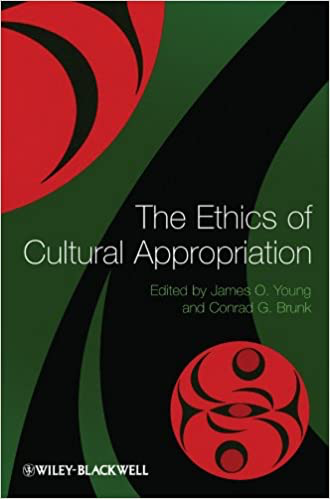
3:16: Cultural appropriation and the arts has been a topic you’ve returned to again and again. It’s a subject matter that touches on many public debates but to be clear, you’re not arguing about things like the misappropriation of lands of indigenous cultures or defending the subjugation of indigenous people by Europeans or anyone else are you. I say this because certain topics are rather more toxic than others and identity issues can be difficult sometimes to discuss without someone somewhere saying they’re offended. I think we’re both sympathetic to disadvantaged people and cultures and to read the following as saying something contradicting that would be a misunderstanding and probably, as you say in your book, commit an ad hominem fallacy. So, having cleared the ground – you may wish to comment on that of course – so can you say what you mean by cultural appropriation in the arts?
JY: I guess we need to be clear about what you mean by culture, appropriation and also what you mean by ‘art’? You are quite right to say that cultural appropriation is a sensitive issue and also right to say that I regard the appropriation of the lands of indigenous peoples as a great crime, one that requires compensation. I am, however, extremely dubious about the claim that the appropriation of artistic styles and motifs is, in general or, indeed, very often, morally objectionable. For example, I do not believe that Eminem or Iggy Azalea do anything wrong when they appropriate a style (rap/hip hop) from Black Americans. I believe that actions are wrong when they cause harm that violates a right (I adopt this position from Mill).
I think that actions can also be morally wrong when they cause gratuitous offence. Often cultural appropriation does neither. Defining art is difficult. As you know there is a huge literature on this subject. What is art in one culture may be something quite different in another. For example, Westerners might regard certain sculptures as art when they are regarded as totems or ritual objects in another culture. For the purposes of Cultural Appropriation and the Arts, I simply said that I mean by art whatever is usually regarded as art in Western cultures. I was sensitive, however, to the fact that what Westerners regard as art can, in other cultures, have spiritual or ceremonial significance.
Defining culture, or a culture, is also difficult. In my book on cultural appropriation, I suggested that the concept of, for example, African American culture is a family resemblance concept, in Wittgenstein’s sense of the term. I am sceptical about essentialist definitions of culture or the claim that certain features of a culture can be identified as necessary or sufficient conditions of membership in a culture. Much more work needs to be done on this question.
3:16: What role does authenticity play in the debate over appropriation in the arts – is there a thing such as authentic art and authentic appropriation?
JY: Often art in a style that is produced in a culture where that style originated is referred to as ‘authentic.’ For example, a work might be referred to as an authentic Haida mask. This is uncontroversial. The controversial question is whether works that are not, in this sense, authentic, are aesthetically flawed.
Early in the cultural appropriation debate, the claim that inauthentic works are aesthetically flawed was often heard. It is not heard as often these days, probably because of the many instances of manifestly aesthetically successful works that are (in the present sense) inauthentic.
3:16: You push back against the argument that cultural appropriation in the arts is harmful and there are many ways the harm argument can go – it’s theft, say some, it leaves owners bereft, it denies people their rightful inheritance, it takes what might have been lost and abandoned and makes undeserved claims and so on. Can you sketch for us the best ‘harm’ as theft arguments against cultural appropriation in the arts so we can feel their force? And how do you push back and find them uncompelling?
JY: Sometimes, I grant, a culture can have a right to certain of its cultural products. This can be a property right and, when such rights are violated, the culture has been harmed in a morally objectionable way. I think that certain objects can be vital to a culture and this can be the basis of a property right that can be violated. There are some clear cases of such a violation – the appropriation of the Zuni war gods sculptures is a case that I discuss in my book on cultural appropriation. People appropriated these sculptures even though the Zuni had not abandoned them. This was clearly wrong.
I doubt, however, that things such as styles, story plots and motifs can be owned, by a culture or anyone else and appropriation of such things is unobjectionable. One of my arguments is that styles cannot be individuated. Very similar styles can originate in different cultural contexts. For example, to take a current example, dreadlocks have been around for thousands of years. To say that Blacks own this hair style simply flies in the face of history. They don’t own the style if ancient Greeks wore their hair in this style (and some did).
Another of my arguments, is that artists from different cultures are constantly influencing each other and, consequently, it is not possible to say that a given culture was the sole place of origin of a given style. Given that artists from a variety of cultures contributed to the development of a particular style, it is unfair to give a single culture ownership of it.
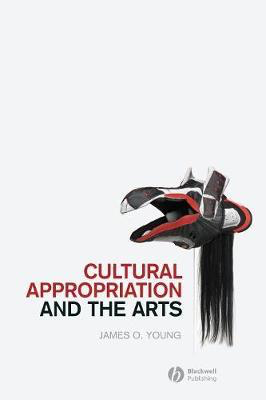
3:16: Another set of arguments you push back against are arguments that see appropriation in the arts as assault. How do these arguments work – again it seems it’s a multi-dimensional set of arguments involving notions of accuracy, economic opportunism, the sacred, and toleration in some form or another, amongst other things? Can you lay out the main strands of the thinking that claims it’s an assault? Again, you find much of this uncompelling don’t you? Can you lay out why you don’t agree it’s a form of assault?
JY: I grant that there are acts of cultural appropriation could cause harm without violating a property right (that is, without being theft). I even grant that some acts of cultural appropriation are wrong because they cause harms of these sorts. For example, some acts of cultural appropriation can result in works of art that misrepresent minority or indigenous cultures in harmful ways and which perpetuate harmful stereotypes. Acts of cultural appropriation that cause this sort of harm are objectionable. I simply deny that all acts of cultural appropriation will perpetuate harmful stereotypes.
Acts of cultural appropriation need to be assessed on a case by case basis. Some critics of cultural appropriation have also alleged that some acts of cultural appropriation appropriate audiences that rightfully belong to a given culture and, thus, cause harm to the culture. I have two responses to this sort of argument. The first is that no one has a right to an audience. An audience is something that an artist earns. The second is that artists are not playing a zero-sum game. There is simply no evidence that when cultural appropriation occurs, anyone is deprived of an audience. On the contrary, audiences can grow. A good example is the explosion of interest in the music of South Africa’s townships that followed Paul Simon’s appropriation of township music.
3:16: What is the problem arising from the notion of ‘profound offence’ and cultural appropriation, and what do you say is the key to its solution?
JY: Profound offence is offence that offends against a culture’s deeply held moral or religious convictions. Appropriating the religious or ceremonial symbols of a society can cause such offence. I have in mind, for example, a non-Sioux wearing a war bonnet that is supposed to be worn only by a properly initiated individual. The solution is very simple: don’t do it. At any rate, don’t engage in cultural appropriation that will cause profound offence unless you have a very good reason. Importantly, a lot of cultural appropriation does not cause profound offence.
3:16: As a summary of your position regarding this issue, how should we respond to cultural appropriation and have you a good example by way of illustrating your idea here – and maybe an example of what not to do? Our cultural situation is rather different that even a decade ago – there seems to be quite a lot of hot-headed policing of culture and identity especially in universities – have you been asked to respond to this at all – what do you say to someone who argues that despite your best intentions and inadvertently you are causing harm and offense by defending appropriation in the arts because they feel offended and feel harmed? (And so am I by giving you a platform!)
JY: The first point to make is that no one has a right not to be offended. If I cause offence, I am often not doing so inadvertently. I often challenge people’s views, knowing that they will be offended. (Obviously, I ought to avoid gratuitous and unnecessary offence.) In many cases, other progressives will not object to my doing so. For example, suppose that I engage in a debate with members of the alt-right or QAnon conspiracists. I can foresee that, pointing out to them that their views are groundless, irrational and dangerous will be offensive. But, in a free and democratic society, I am free to do so and I do not act wrongly.
Now, change the example and imagine that I am criticizing people on the left for what I take to be ill-considered views. Perhaps I challenge the view that most or all appropriation of styles is wrong. These people on the left may be offended. But I do not act wrongly in causing offence, so long as I am not gratuitously offensive. It is easy to be offended when one’s deeply-held views are challenged. I don’t like it any more than lots of other people do. People ought to hear three offensive things each morning before breakfast. It will do them good. People ought not to live in an echo chamber. Living in an echo chamber is partly responsible for the problems we face today. Perhaps the views that I am questioning are true. But, as Mill says, the truth must not be held as a dogma and if it is not to be a dogma, it must be challenged and defended.
I am aware, of course, that minority and, especially, indigenous people have been terribly oppressed and that it is incumbent on me to take as much care as I can to treat them with respect and consideration. However, I do not believe that I treat anyone with respect and consideration if I do not challenge them when they hold beliefs that I believe to be false. On the contrary, that is to treat people disrespectfully. I do not treat people with disrespect when I engage them in debate as equals. I do disrespect them when I defer to them even when I disagree. That is like treating them as children. We do not challenge children for believing in fairies. Minority and indigenous peoples face huge problems. People are being shot down in the streets for the crime of walking around while Black. Indigenous people are living in terrible conditions on impoverished reserves. Wealth inequalities are racialized. And yet, some people are creating a tempest in a teapot about whites wearing hoop earrings, singing the blues or painting Emmet Till’s coffin. Let us focus on the real problems. Focusing on harmless and inoffensive cultural appropriation simply divides progressive people against each other.
Fortunately, very little has been done to police me. Probably this is due to the fact that I am pretty small fry. However, it troubles me deeply that other people have been shouted down simply for expressing themselves. It troubles me deeply that many progressive people do not defend unflinchingly the right to freedom of expression. People on the left should be the great defenders of this right.
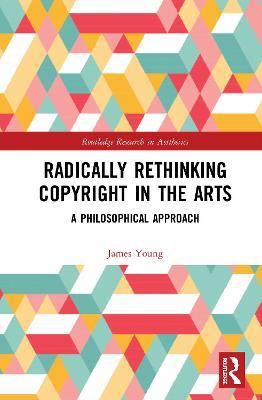
3:16: Another big issue in the arts is copyright law. You were stimulated to think about this because of the growing wealth inequalities of our present world. You’re not against copyright laws per se are you, just what they are at the moment. Can you set out the philosophical issue as you see them?
JY: By creating copyright laws, society transfers wealth from one group of people to another and copyright law requires a moral justification. The justification that they have historically been given is that society benefits from the laws: we pay monopoly prices on things like books, movies and songs, but we are better off since artists are encouraged to create. The problem is that artists are not doing well under the current copyright regimes. The people who profit most from current laws are the already obscenely wealthy.
My goal in Radically Rethinking Copyright in the Arts was to demonstrate that current copyright laws cannot be morally justified. I proposed a new way of thinking about copyright that is, in my view, justifiable. Not coincidentally, artists would be given more control over their productions and the capacity of corporations to profit at the expense of artists and audience members would be reduced.
3:16: What would a philosophically virtuous regime of copyright law work look like, and why would this be so much better than the present situation – and why would it be better than abandoning any such laws and letting the pirates take over?
JY: So long as market and mixed-market economies exist, artists must support themselves by bringing their products to market, just as many other people must. If artists devoted themselves to their art and then pirates could produce tokens or replicas of their works, artists would be harmed and, I believe, harmed in a way that violates their rights.
I propose several key changes to copyright law. These include a shorter copyright term, fewer restrictions on the appropriation of what I call artistic elements (such as styles, fictional characters, etc.) and the recognition that copyright can be abandoned by disuse. My most controversial position was the result of an argument to the effect that corporations may not own copyrights. I argued that the sale of a copyright extinguishes copyright and leaves works open to be appropriated by all comers.
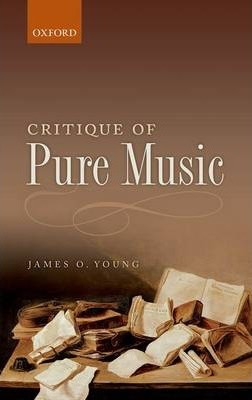
3:16: Your great expertise in the arts is philosophy of music and you’ve written against formalism, ‘pure music’. Can you first say what is meant by formalism and why you deny Peter Kivy’s claim that people do actually perceive music in terms of pure form and are taking an illusion as real when they say they’re responding to psychological depth or other profound, non-formal elements in music? Were you always an anti-formalist or did you get there by dint of the arguments?
JY: Formalism is that view that music (at least purely instrumental music) is nothing but a pattern of sound without meaning or reference and that this pattern is appreciated as pure-contentless pattern. Formalist hold that musical beauty is autonomous, that is, musical form is beautiful in and of itself. I do not deny that some people appreciate music as pure form. I just deny that that is the only way to appreciate music.
One of my reasons for doubting formalism is that many people report that some works of music strike them as profound and that they find in music psychological depth or insight. I do not think that there is any way that a contentless pattern could be profound or have psychological depth. Of course, formalists can deny that music is experienced as having psychological depth or profundity, but I take it that there is a phenomenon here that needs to be explained, not explained away. I think that it is unlikely that so many fine musicians and critics can be completely wrong about their responses to music. I remember being suspicious of formalism even when I was an undergraduate and that counts as close as makes no difference always having been an anti-formalist.
3:16: So why don’t you think music can arouse emotions without bringing in things extraneous to its form?
JY: Formalists have always argued that contentless musical form cannot arouse ordinary emotions (such as joy or sadness) since nothing about a pattern provides grounds for being joyful or sad. The abstract patterns of colours in a kaleidoscope do not arouse emotions, they argue, nor do patterns on an oriental carpet or patterns of sound.I think that they are wrong about patterns of sound..
The problem is that the empirical evidence is pretty decisive: music does around ordinary emotions. The best explanation of this is that music is heard as resembling human expressive behaviour. While listening to music, we react as to do actual human expression. These reactions can include emotional reactions.
3:16: You think that music represents, and formalists say it doesn’t. Is there evidence that can decide this, or is the argument pretty much a priori?
JY: Just the opposite is true. I think that it has been a mistake to treat the debate between formalists and anti-formalist as one to be resolved a priori. We are now making progress in philosophy of music because we are increasingly drawing upon the large literature in psychology of music. On the basis of the empirical evidence, it is now all but certain that many listeners experience music as resembling human expressive behaviour. It is equally certain that music arouses ordinary emotions.
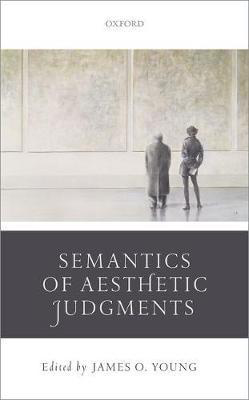
3:16: Does music with lyrics, and therefore a possible cross-over into drama or literature where we find ‘death of the author’ arguments and formalist defences too - help or hinder the case against the formalists?
JY: One of the things that I argue in Critique of Pure Music is that lyrics contribute less to vocal music than the music does. I do so primarily on the basis of findings in the psychological literature. A variety of experiments have been done, including some that set happy lyrics to sad music and vice versa. Songs with happy lyrics but sad music are experienced as expressive of sadness. I conclude that even music with lyrics is to be regarded primarily as music. When Kivy still believed that music can resemble human expressive behaviour (unwisely, in light of the empirical evidence, he gave up this view), he held that the resemblance is accidental. This strikes me and others (including Stephen Davies) as implausible. Much of the resemblance seems intended. There is just too much resemblance for it all to be accidental. Consequently, I am unsympathetic to the view that the composer is dead. Understanding music requires reference to the intentions of composers.
3:16: So what is the value of music if formalism is debunked – and why doesn’t your anti-formalist position not fall foul of the heresy of substitutable experience?
JY: Music can be valued for a variety of reasons, including being valued as an interesting pattern of sound. I would only insist that sometimes some people value music because they experience music as a human expression and this is valuable to them. Sometimes these experiences can be moving and profound.
The heresy of substitutable experience is the view that reading the score of a work is just as aesthetically rewarding as listening to a performance of the work – one experience can be substituted for the other. I argue that formalists who believe that appreciation of music is appreciation of an abstract pattern cannot avoid the heresy. I regard this as a reductio of formalism. I do not believe that appreciation of a musical work is a matter of appreciating an abstract musical form.
Consequently, it is easy for me to avoid falling into the heresy. We don’t experience a score as resembling human expressive behaviour, but we do hear music as doing so.
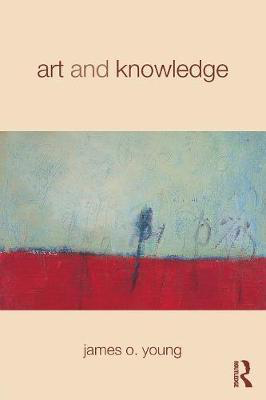
3:16: Some will say that all this debate about art is besides the point in the sense that when we say we like a work of art we’re not saying much more than expressing a purely subjective attitude of taste. Liking or disliking Dylan is like liking or not liking sprouts. It’s a real difference but more about the people’s tastes than sprouts. Where do you stand on this? Would a history of the arts be no more than a history of tastes over time?
JY: I am opposed to subjectivism. I agree with Hume when he says that, “Whoever would assert an equality of genius and elegance between OGILBY and MILTON, or BUNYAN and ADDISON, would be thought to defend no less an extravagance, than if he had maintained a mole-hill to be as high as TENERIFFE, or a pond as extensive as the ocean.” Explaining why Hume is right is difficult and I do not have a complete view on this matter – at least not yet. Part of the explanation is, however, that works of art are not merely sources of pleasure.
If art were only a source of pleasure, then subjectivism might be right in the way that we ought to be subjectivists about whether sprouts taste good. Some art, however, can be a source of insight and knowledge. Someone might listen to Bach’s St. Matthew Passion and decide that he doesn’t like the way that it sounds. However, it might be possible to derive insight from it. If so, then the way is open to a non-subjective way of judging art. Consider this analogy. Suppose that someone reads a scientific essay and says, “This is rubbish. I didn’t enjoy reading it.” That is the wrong sort of response. The right response is to ask whether the essay is a source of knowledge. This is a matter on which one might be mistaken. One might judge that a paper on climate change is rubbish and Chinese propaganda. The paper might, nevertheless, give an accurate picture of climate change and not be propaganda. Art might be like that. I might not recognise that a work of art provides insight into, say, human nature, but it does. I judge that the work is poor, but I am wrong.
3:16: .Finally, the curious readers here at 3:16, are there five books other than your own that you could recommend that would take us all further into your philosophical world?
JY: 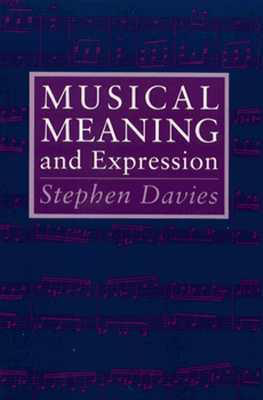
Stephen Davies, Musical Meaning and Expression
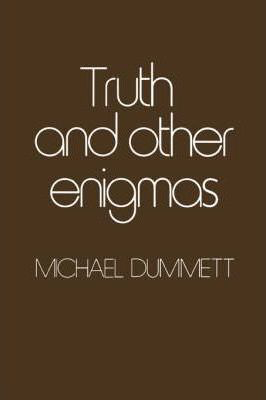
Michael Dummett, Truth and Other Enigmas
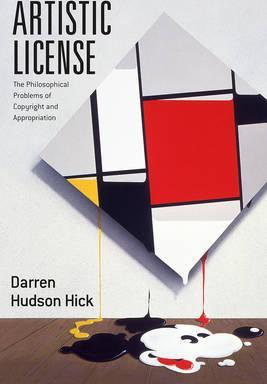
Darren Hudson Hick, Artistic License
John Stuart Mill, On Liberty
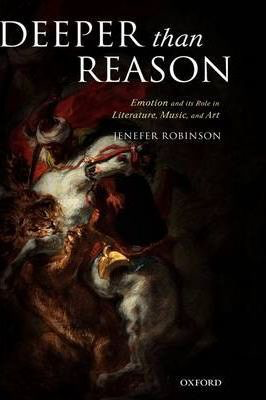
Jenefer Robinson, Deeper than Reason

ABOUT THE INTERVIEWER
Richard Marshall is biding his time.
Buy his second book here or his first book here to keep him biding!
End Time series: the themes
Huw Price's Flickering Shadows series.
Steven DeLay's Finding meaning series
NEW: Joseph Mitterer's The Beyond of Philosophy serialised
